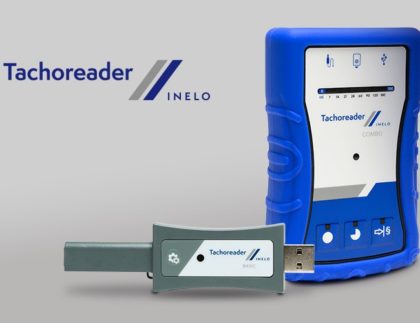

AdBlue is an installation of key significance for the exhaust gasses emission reduction in trucks, and its proper operation is an important aspect of environmental standard compliance in road transportation. However, with the increasingly restrictive regulations and the growing pressure towards pro-environmental actions of the European TFL industry, the number of cases of AdBlue installation tampering is also growing.
In today’s article we will look into this issue and discuss what the maintenance of AdBlue installation should look like and what the penalties and toll overpayments for the potential tampering with it are – in particular in regard to the German law.
You will learn the most important information regarding this issue and the ways to effectively protect your business and comply with the regulations. Read ahead!
Introduction to AdBlue and the German law.
AdBlue is a trade name of the chemical compound – urea water solution. It is used in order to reduce the emissions of nitric oxides to the atmosphere. The installation consists of placing an AdBlue tank in the vehicle and supplying the right amount of the solution to the engine.
AdBlue is mostly installed with diesel engine vehicles, which meet the EURO 6 emission standards, and its use is required in some jurisdictions in order to meet the exhaust gases emission regulations. AdBlue works as a catalyst reducing the nitric oxides in the engine exhaust gases, which in turn results in the reduction of the negative impact of the vehicles on the natural environment. Due to these characteristics the new trucks registered in the European Union have been required to have this installation for 8 years now.
Within the context of he German law, the important question is the tax allowance for the vehicles with the most eco-friendly engines. Having an AdBlue installation entitles you to use the lower toll charges.
What are the legal consequences of having illegally installed AdBlue?
Tampering with AdBlue in trucks is not only a violation of environmental standards but first and foremost an offense that may result in serious consequences for both the carrier and the driver. In the light of the German law, any errors in the operation of the device showed by the on-board computer provide the basis for the control authorities to confiscate the device, order further inspection of the vehicle or ban it from carrying on. The fines issued in such situations are typically from around EUR 500 (to the driver) up to EUR 1000 (to the carrier), however their sum total can get even higher at the later stages of the proceedings.
It’s not all – if the inspection shows that the AdBlue has been tampered with, according to the German law this may be considered a tax violation, which can result in further financial consequences towards the company. Read on to learn more.
The inspection and tampering detection process in Germany.
The main authority responsible for the vehicle inspection in Germany is BAG – Federal Office of Freight Transport. BAG inspectors do the routine control of vehicles, during which many aspects are checked, including the compliance of the vehicle with the exhaust emission standards and AdBlue installation status.
The vehicle inspections in Germany regarding the AdBlue mostly encompass checking if the quality and amount of AdBlue in the tank are compliant with the regulations. Inspectors use various measuring devices to make sure that the installation provides an appropriate level of exhaust gasses emission reduction. Modern trucks additionally come with advanced emission management systems, monitored by the on-board computer. Inspectors can read data from the computer to see if the system operates properly, whether there are any errors or malfunctions, and to see if the AdBlue installation has been tampered with. Currently, the inspections can also include the analysis of the exhaust gasses of the vehicle on the road.
AdBlue maintenance: what you should know
Unfortunately, AdBlue installations are unusually prone to malfunction and can be rather pricey to repair. These are the most common issues:
- human error: such as refilling AdBlue installation with diesel oil by mistake, which results with the necessity to clean the tank immediately;
- low quality of the liquid: using low-quality or contaminated AdBlue liquid can lead to the malfunction of system components and adversely impact the exhaust gas emission reduction;
- liquid clotting: in low temperatures in winter, AdBlue liquid can clot, which prevents it from being injected into the exhaust system. This can lead to the system damage, and as a result, problems with exhaust emission reduction.
Other potential issues with AdBlue installation include sensor damage, control or management software errors, as well as the liquid being refilled too seldom, which can be the case in vehicles used less often.
Financial aspects of toll overpayment and tampering penalties
As you already know, the German law can qualify AdBlue tampering as a tax violation. The high penalties and toll overpayments for carriers can be the result of that. It means that a fine for the driver and the company owner can be but a taste of the penalties to come if control authorities find that the installation has been tampered with.
Germany has a system of toll charge allowance, which is dependent on the exhaust gas emission class (form EURO 0 to EURO 6). In short, having a more modern and more environmentally friendly engine results in lower toll charges. In this context any AdBlue tampering which results in the system not operating properly and in the increase of the amount of exhaust gas emissions, qualifies as unlawful use of tax allowance for the vehicles of the lower emissions category. As a result, AdBlue tampering is treated very seriously, and if detected during an inspection, it can lead to very serious legal and financial consequences for carriers operating in Germany.










